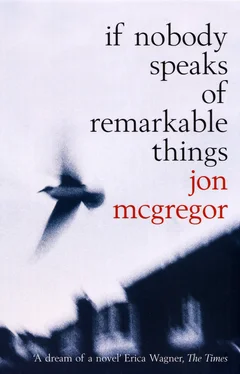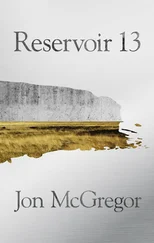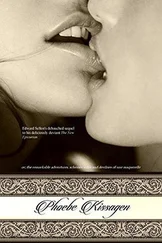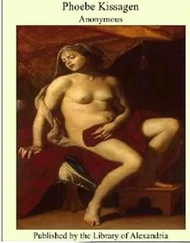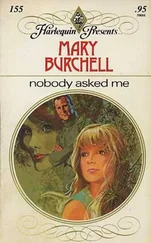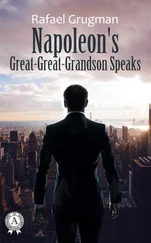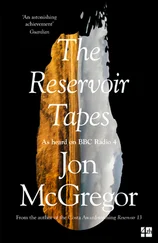Sometimes, when he was sure nobody was looking, he would make up a name, look at a man’s young face and decide a name on the spot, like a fresh baptism, trying to disguise the brutal anonymity of what they were doing.
Those were the memories he carried with him when he travelled back home to his wife, picking mud from his fingernails and thinking of all the things he would be unable to tell her.
And they are the memories he’s been shuffling around with all these years, unspoken because there is nothing to say, burying them deep down and finding them risen up again, the faces of the men, the smell of soil and flesh, the stumbling words of the chaplain drowned out by the distant noises of war.
And she doesn’t understand why he doesn’t want to put out his medal like a trophy.
And he can’t tell her that he liberated Europe with a spade.
Next door, at number eighteen, the young man with the blinking eyes leans out of his window and takes some final photographs of the street, his packing almost completed. He squints through the viewfinder and snatches the images in quick succession.
The boy with the yellow sunglasses poking at the barbecue.
The man with the burnt hands sitting on an old wooden chair.
The twins playing cricket, arguing.
A crane, looming brightly over the rooftops.
And on the way home I hardly say a word to Michael.
He concentrates on driving, making small adjustments to the heating, the stereo, the angle of his seat, the speed of the windscreen wipers.
I look out of the window, or close my eyes, and I think about the way of things now.
I think about my mother crying for a week, and I try to imagine her hard dry face changed in that way.
I picture precious water falling on desert ground and rolling across the surface like beads.
I picture a tap left on in a deserted house, reconnected at source and suddenly gushing forth with bright clean water.
And I picture my mother, actually, her face bloated and streaked, her eyes bloodshot and waterlogged, a handkerchief squashed into her hand like a sponge.
I wonder if she stayed in bed that week, buried in a mound of bedclothes, or if she stalked the house like an exorcist, or if she just fell to the floor beside the telephone and refused to move.
I wonder how my father felt when he heard her say the words, I’m safe now, if his heart leapt up inside him, I wonder if he was holding her at the time.
I remember that breakfast in the Little Chef again, a tiny brick building tucked into a valley of stone and pine and heather, I remember looking out of the window as though I was just waking up, saying where are we, looking up at the endless reach of the mountain into the sky.
And the whole thing creeps back to me, and I wonder how such important memories become veiled from us, like front rooms hidden behind net curtains.
My dad saying we’re in Scotland now, look at it love, this is Scotland, and me not understanding what he meant.
My mother slamming down her knife and fork so hard I thought she’d broken the plate, saying we’re not going, I can’t do it, we’re not going.
My dad talking quietly to her, trying to touch her hand and she kept moving it away.
Like two magnets face to face.
And he was talking so quietly that I couldn’t hear him, and I don’t think I would have understood if I could, and so I joined the dots on my placemat.
My mother saying you don’t understand I’m not going.
Leaving so quickly that I didn’t get a lolly even though I’d cleaned my plate, and not arriving back home until it was dark again.
I think about what it was that stopped her going, that made her feel unsafe for all that time.
I wonder how many ways there are for a mother to produce that wreckage in her own daughter, and my muscles tense as I think of them.
Locked doors, a belt, bruises in hidden places.
Sharp words, absent touches, thin blankets, empty plates.
I think about the times I thought of her as a hard woman, an unfair mother, and I realise what mercifully pale reflections those moments were.
He says are you asleep, gently, and I open my eyes and he says are you okay?
I say yes, fine, I’m just a bit tired.
He says do you want to stop for something to eat? I could do with a rest he says, and he squeezes the back of his neck the same way my father used to.
He was always a weary man, my dad.
He seemed to be permanently in the lounge, watching television, slung low in the armchair with his feet up on the table, dark patches on his white socks like mould on soft fruit.
He never seemed to be watching the programmes, unless they were boxing-related, but it was impossible to change the channel without him noticing.
When he did move around the house he moved slowly, easing his workboots off by the door, shuffling through to speak to my mother, settling into his chair as if into a hot bath.
Sometimes when I got back from school he’d already be there, not in his chair but scraping his way through the house, cleaning slowly.
The curtains would always be closed on those days, my mother an absent presence upstairs.
Your mother’s not feeling so good today my dad would say, but she never went to the doctor’s.
He would cook me tea, burning fishfingers under the grill with tiredness clouding his eyes like bruises.
Once we ate from paper plates, and I didn’t think to ask why.
He says there’s some services here do you want to stop for a while, and he’s already indicating so I say yes and we drive in and park.
We sit in the restaurant in the bridge, picking at overpriced and overheated food, watching the traffic slashing beneath us.
There’s a group of women at the table next to us, and I hear one of them saying but I don’t understand why he was naked in the first place.
He says so anyway how did you get on then, was it okay?
I say well my mum at least admitted she wasn’t that impressed, I think, and my dad didn’t say much at all.
I don’t tell him what my dad did say.
A woman at the next table says I didn’t really think he was like that, and another woman says well he’s not usually is he.
He says but do you think it was worth going, and I say yes, yes it was, I think maybe I’ve started something, I think maybe they just need a little more time.
One of the women says no it was Phoebe’s idea, she said he needed to show some empathy, to get the apartment, you know, with the ugly naked guy.
I stand by the entrance and wait for him to come out of the toilet.
I watch a boy with David Beckham on his t-shirt playing a football game in the arcades.
I watch a woman with a pushchair waiting for someone to hold the door open for her.
I look at the pushchair, at the bag dangling from the back of it, spilling over with nappies and cloths and bottles and all the other paraphernalia of babydom that I know nothing about.
I realise that I haven’t begun to think about any of these things, prams, pushchairs, cots, nappies.
I realise that I will soon be a mother, and my stomach goes sick at the thought of it, greasy and fluid and unstable.
My face feels red, my legs feel as thin as paper.
He comes out of the toilet, he sees me and says are you alright you don’t look alright, I say yes I just need to sit down.
As we walk to the car I feel his hand hovering by my elbow, waiting to grab me.
We drive back onto the motorway and I swallow weakly a few times, trying to keep the sickness down.
I wipe my face with my fingers and he says is it too hot, do you want some air?
I say no it’s fine, I just, I feel a bit, queasy. I wonder if this is the nausea I read about in those leaflets, or if it’s just tiredness and stress and travelling in a car.
Читать дальше
Конец ознакомительного отрывка
Купить книгу
